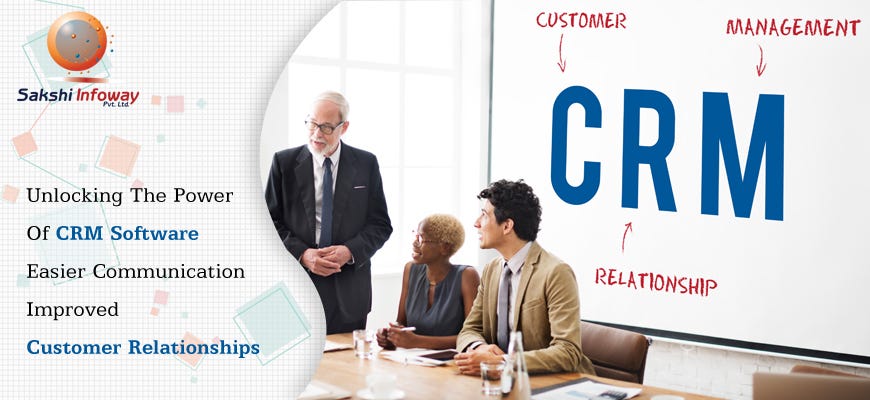A CRM software allows businesses to manage and analyze their customer relationships effectively. It helps track communications, manage sales processes, and deliver actionable insights for better decision-making.
CRM systems support sales management, integrate with social media, facilitate team communication, and provide mobility through cloud-based solutions. With CRM, businesses can consolidate customer data, qualify leads, set objectives, and automate manual processes to enhance customer satisfaction and improve overall efficiency.
It is a software system that helps business owners easily track all communications and nurture customer relationships.
Overview Of Crm Software
CRM software, or Customer Relationship Management software, is a powerful tool that helps businesses manage their customer relationships effectively. It is designed to streamline and automate various aspects of customer interactions, including sales, marketing, and customer support. CRM software is important for businesses as it allows them to centralize customer data, track interactions, and analyze customer behavior, helping them make informed decisions and provide personalized experiences. With key features and functionalities such as contact management, lead tracking, sales forecasting, and reporting, CRM software enables businesses to improve customer satisfaction, increase sales, and strengthen customer loyalty. In conclusion, CRM software is vital in enhancing business customer relationship management. It allows them to understand their customers better, engage with them effectively, and drive business growth.
Benefits Of CRM Software
Benefits of CRM Software:
Increased efficiency and productivity: CRM software allows businesses to streamline their processes and automate tasks, increasing overall efficiency. By consolidating customer information and providing easy access to data, employees can save time and focus on more important tasks.
Improved customer relationships and satisfaction: CRM systems enable businesses to understand customers’ needs and preferences better. With access to detailed customer profiles and communication histories, businesses can provide personalized experiences and build stronger relationships. This leads to increased customer satisfaction and loyalty.
Streamlined sales and marketing processes: CRM software helps businesses track leads, manage sales pipelines, and analyze sales data. This enables sales teams to prioritize leads, track their progress, and close deals more effectively. Additionally, marketing teams can use CRM data to target specific customer segments and create personalized marketing campaigns.
How Does A CRM Software Work?
A CRM (Customer Relationship Management) software works by collecting and managing data, segmenting and targeting customers, managing sales and leads, facilitating customer communication and engagement, and providing reporting and analytics.
Data collection and management is a crucial aspect of CRM software. It allows businesses to gather customer information, such as contact details, purchase history, preferences, and interactions, in one centralized system.
Customer segmentation and targeting is another important feature of CRM software. It enables businesses to categorize their customers based on various factors, such as demographics, buying behavior, and preferences, and tailor their marketing strategies accordingly.
Sales and lead management is another key functionality of CRM software. It helps businesses track and manage sales opportunities, follow up with leads, and streamline sales.
Customer communication and engagement are also facilitated by CRM software. It allows businesses to communicate with customers through various channels, such as email, social media, and live chat, and nurture customer relationships.
Lastly, CRM software provides reporting and analytics capabilities. It generates reports and analyzes customer data to gain insights into sales performance, customer behavior, and market trends, helping businesses make informed decisions.

Credit: www.salesforce.com
Types Of CRM Software
CRM (Customer Relationship Management) software is designed to streamline and enhance customer interactions, ultimately improving business processes and growth. There are three main types of CRM software: collaborative, operational, and analytical. Collaborative CRM focuses on facilitating communication and collaboration between different departments within an organization to enhance customer service. Operational CRM aims to streamline and automate sales, marketing, and customer support processes. Analytical CRM analyzes customer data to gain insights and make informed business decisions. When using CRM software, it is important to map your customer journey, define your business and sales processes, create custom fields and stages, migrate customer information, integrate your tools, and automate manual processes. Setting objectives and expectations, qualifying leads, and managing data are crucial for CRM success. Businesses can effectively manage customer relationships, enhance customer experiences, and drive growth by implementing the right CRM software and following best practices.
Choosing The Right CRM Software
When choosing the right CRM software for your business, assessing your company’s needs and requirements is important. Consider factors such as the size of your business, the industry you operate in, and the specific functionalities you are looking for. Scalability and customization options are also crucial to ensure the CRM software can grow with your business and be tailored to your needs. Additionally, evaluating the pricing and integration capabilities of different CRM software solutions is important to ensure that they fits within your budget and can seamlessly integrate with your existing systems. By carefully considering these factors, you can choose the right CRM software to streamline your business processes and enhance customer relationship management effectively.
CRM Software Best Practices

CRM software is crucial in managing customer relationships and improving overall business efficiency. Implementing CRM software is not the journey’s end; it requires constant maintenance and best practices for optimal performance and results.
- Regular data cleansing and updates: Keeping the CRM database updated is essential to prevent duplicates, inaccuracies, and outdated information. Regularly review and clean up data to ensure accurate insights and reports.
- Training and support for users: Provide comprehensive training and ongoing support to users to maximize the utilization of CRM software. This will help them understand its features and functionalities effectively.
- Continuous evaluation and optimization: Regularly evaluate CRM software’s performance and identify improvement areas. Optimize processes, workflows, and configurations to align with changing business requirements.
- Integration with other tools and systems: Integrate CRM software with other business tools and systems to streamline data flow and enhance efficiency. Connect CRM with email, marketing automation, and customer support tools to comprehensively view customer interactions.
By following these best practices, businesses can ensure that their CRM software functions optimally and delivers value in managing customer relationships.
Frequently Asked Questions On How A CRM Software Works?
What Are The Five 5 Steps In The CRM Process?
The five steps in the CRM process are: 1. Define your business and sales processes. 2. Map your customer journey. 3. Migrate customer information. 4. Automate manual processes and integrate tools. 5. Set permissions and add users.
What Are The 4 Steps Of The CRM Process?
The four steps of the CRM process are deployment, setting objectives/expectations, qualifying leads, and data management. CRM software helps businesses manage and analyze customer relationships, track communications, and nurture leads.
What Are The 3 Types Of CRM?
The three types of CRM are collaborative, operational, and analytical. Collaborative CRM focuses on improving communication and collaboration with customers. Operational CRM automates and streamlines sales, marketing, and customer service processes. Analytical CRM focuses on analyzing customer data to gain insights for decision-making.
How To Use CRM Step-by-Step?
To use CRM step by step:
1. Map your customer journey.
2. Define your business and sales processes.
3. Create custom fields, stages, and pipelines.
4. Migrate your customer information.
5. Integrate your tools and automate manual processes.
6. Add users and set permissions.
CRM helps manage customer data, sales management, and team communication.
Conclusion
CRM software and how does it work? CRM software is a powerful tool that helps businesses manage customer relationships and improve sales processes. By centralizing customer data, automating tasks, and providing insights and analytics, CRM software enables businesses to streamline their operations and enhance their customer interactions.
From tracking leads to managing customer communications, CRM software is a game-changer for businesses looking to boost efficiency and drive growth. With its user-friendly interface and robust features, CRM software is an essential tool for modern businesses. So, if you want to take your business to the next level, implementing a CRM software is worth considering.




